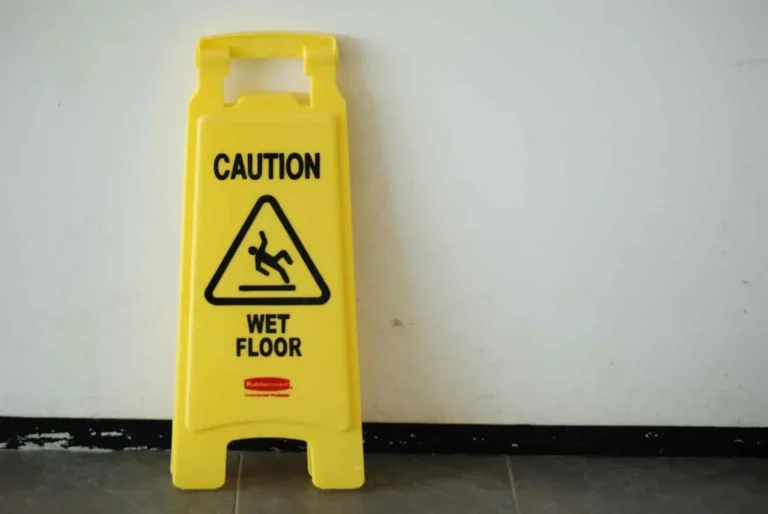How Weather Conditions Affect Liability in Slip and Fall Claims in West Palm Beach

Weather conditions can significantly impact slip and fall incidents, influencing both the occurrence and liability of such accidents. In West Palm Beach, where weather can vary from heavy rain to high humidity, understanding how these conditions affect liability in slip and fall claims is crucial for both claimants and property owners. This blog post outlines how different weather conditions can influence slip and fall claims and what to consider when pursuing compensation.
How Weather Conditions Influence Slip and Fall Incidents
- Rain: Heavy rainfall can lead to slippery surfaces, particularly on sidewalks, driveways, and parking lots. Water accumulation or poorly maintained drainage systems can increase the risk of falls. Property owners are expected to address such hazards by implementing proper drainage and applying anti-slip treatments where necessary.
- Wind: Strong winds can contribute to hazards like fallen branches, debris, or even loose outdoor fixtures. These conditions can create dangerous situations for pedestrians, leading to slip and fall accidents if the property owner fails to secure or clear the area.
- Humidity: High humidity levels can contribute to mold and mildew growth on surfaces, making them slippery. This can be particularly problematic in areas with poor ventilation or inadequate maintenance.
- Heat: Extreme heat can cause surfaces like asphalt to become dangerously hot and slippery. For instance, melting pavement or heat-related expansion of materials can create uneven surfaces that increase the risk of slips and falls.
Legal Considerations for Weather-Related Slip and Fall Claims
- Determining Liability: Liability in weather-related slip and fall cases often revolves around the property owner’s duty to maintain safe conditions. If weather conditions contribute to an accident, it must be determined whether the property owner took reasonable steps to address or mitigate the risk.
- Documenting Conditions: Gathering evidence related to weather conditions is essential. This can include weather reports, photographs of the site, and records of maintenance or lack thereof. Evidence showing the property owner’s awareness of adverse conditions and their response is also crucial.
- Comparative Negligence: Florida follows a comparative negligence system, which means that if a claimant is partially at fault for their accident, their compensation may be reduced accordingly. For example, if a slip and fall occurred due to rain but the claimant was wearing inappropriate footwear, this could affect the claim.
- Insurance Claims: Insurance companies may use weather conditions as a factor in determining liability and compensation. Understanding policy coverage and how weather-related claims are handled can help in navigating the insurance process.
Steps to Take After a Slip and Fall Incident
- Seek Medical Attention: Prioritize your health and get medical treatment for your injuries. This also provides documentation of your injuries and their severity.
- Report the Incident: Notify the property owner or manager about the slip and fall accident. Document the report and any immediate actions taken to address the hazard.
- Collect Evidence: Gather evidence from the scene, including photographs of the hazardous condition and weather-related factors. Obtain a copy of the weather report for the day of the accident.
- Consult an Attorney: Consult with a personal injury attorney experienced in handling slip and fall claims. They can help assess the case, determine liability, and guide you through the legal process.
Challenges in Weather-Related Slip and Fall Claims
- Proving Negligence: Demonstrating that the property owner was negligent despite adverse weather conditions can be challenging. It must be shown that they failed to act reasonably in addressing known hazards.
- Weather Variability: Weather conditions can change rapidly, making it difficult to prove the exact conditions at the time of the accident. Detailed documentation and timely evidence collection are essential.
- Insurance Disputes: Insurers may dispute liability or argue that the weather conditions alone were responsible for the accident. Strong evidence and legal representation are necessary to counter these claims.
Conclusion
Weather conditions can play a significant role in slip and fall claims, affecting both the risk of accidents and the determination of liability. In West Palm Beach, understanding how weather factors influence these claims can help property owners take preventive measures and assist claimants in pursuing fair compensation. By documenting conditions, seeking legal advice from a personal injury lawyer, and addressing hazards proactively, both parties can better navigate the complexities of weather-related slip and fall claims.

 Call Us Today - It's Free
Call Us Today - It's Free